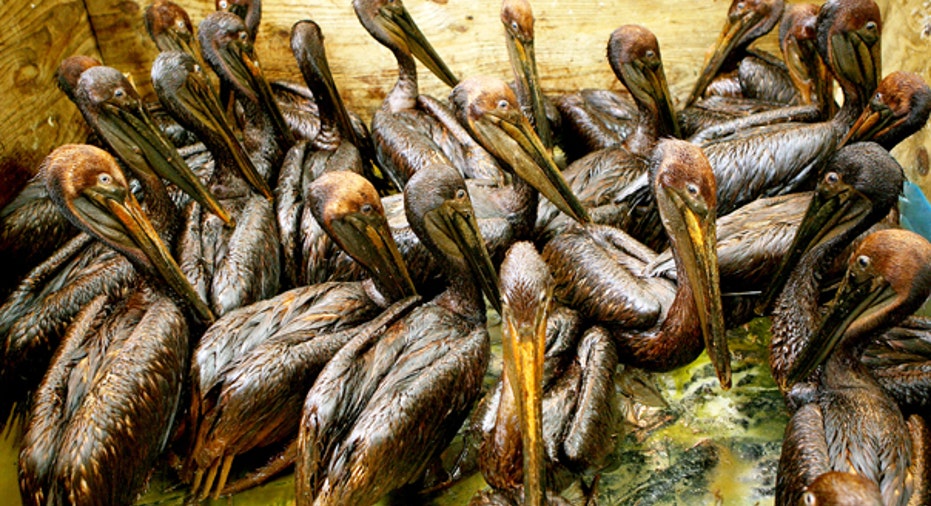BP Cuts Oil Spill Burden With $1 Billion Mitsui Deal

BP struck a key victory in its battle to share the cost of the Gulf of Mexico oil spill when partner Mitsui & Co agreed on Friday to pay $1.1 billion toward the clean-up bill and possibly billions more in fines.
Japanese trading house Mitsui's exploration unit MOEX owned 10% of the Macondo well but had sought to avoid paying its share of the costs, claiming BP's negligence exempted it from this obligation.
MOEX has dropped this claim and analysts said this weakened the case of 25% well shareholder Anadarko Petroleum (NYSE:APC), which has also invoked the same argument.
"This is the first recognition by one of the partners that actually...blame is shared and should be shared and therefore the costs should be shared as well," Societe Generale analyst Irene Himona said.
"It is very significant because clearly now it means that BP can try and ensure that everybody else who is involved will also meet their obligations," she added.
By 6 a.m. EDT BP's (NYSE:BP) shares were up 4.0% against a 1.6% rise in the STOXX Europe 600 Oil and Gas index .SXEP.
BP has estimated the cost of capping the well, cleaning up the damage from America's largest ever offshore oil spill and compensating those affected will be over $41 billion.
This suggests the Japanese company is paying less than a third of its potential liability in respect of the clear-up and compensation costs. On this basis, Anadarko could be liable for almost $2.7 billion.
However, one source close to the matter said BP was likely to seek a higher rate of recovery from Anadarko than it received from Mitsui, which did not have a direct liability to pay since it invested through MOEX, which had few assets.
Anadarko on the other hand does have a direct legal liability as it has invested directly in the well."Anadarko, BP's other partner in the Macondo license is likely to come under pressure to settle as well now," said Richard Griffith at Evolution Securities.
Anadarko Chief Executive Jim Hackett said earlier this month he would be prepared to come to the table and settle "under the right circumstances."
In addition to actual damages, fines and punitive damages - payouts yet to be decided given ongoing court cases -- could double the $41 billion bill, lawyers have said. At a minimum, the fines are likely to be over $3 billion, analysts said.
Even if fines are half the level the government has said it will seek, and with no punitive damages, Moex is now liable for around another $1 billion in payments, while it could be on the hook for much more, potentially reducing BP's worst case scenario by several billion dollars.
However, BP's shares continue to trade a level which reflects a greater discount than would be explained by the provision BP has taken.
"There is also continued uncertainty around the final cost, which could yet increase," analysts at Bernstein said in a research note.
MOEX has now joined BP in blaming the accident principally on Transocean (NYSE:RIG) the company which BP hired to drill the well, under BP's instruction. BP has sought to extract the full cost of the disaster from the Swiss-based driller.
Transocean's contract with BP indemnifies it against environmental damage but if BP can prove gross negligence or that the Deepwater Horizon drilling rig was unseaworthy, it could overrule this indemnity.
The Commission appointed by President Barack Obama to investigate the rig blast which led to the United States's worst ever spill said BP was responsible for most of the bad decisions on the rig.
Mitsui said it had no plan to change its forecast net profit or dividend in 2011/2012 after the settlement.



















